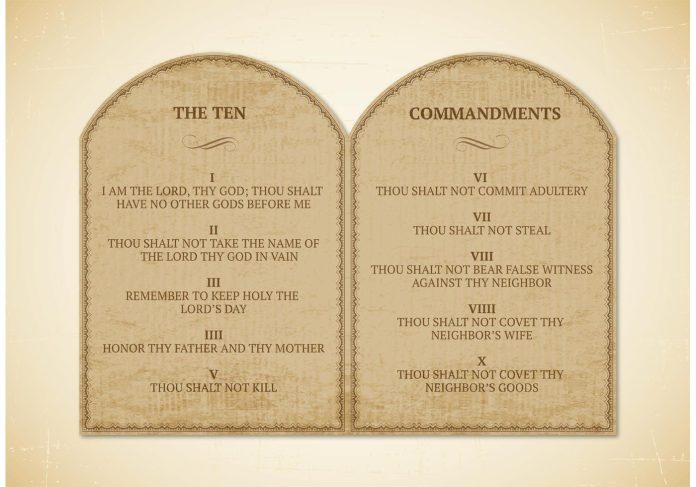Can you guess how many laws are written in the Old Testament? How about laws enforced here in the Philippines?
According to Bible scholars, there are about 600+ Jewish laws in the Old Testament mostly scattered in the books of Exodus, Leviticus, Numbers, and Deuteronomy.
In the Philippines, there are about 15,000+ laws to date. Sounds too much? How can one make sure to comply with all these?
The first reading and the Gospel reading for today’s reflection, despite being from different contexts, are very much interconnected.
They both show the difference and similarity of God’s commandments between the Old and New Testaments. Exodus 22 emphasizes the value of inclusivity by treating foreigners, widows, and orphans with compassion highlighting the moral responsibility of the Israelites to extend care and protection to the vulnerable members of society.
Matthew 22 captures a dialogue between Jesus and the expert of the law, where Jesus affirms the greatest commandment of loving God with all of one’s heart, soul, and mind; as well as loving one’s neighbor as oneself.
Laws are regulations that bind all people in a community. Laws are created supposedly to protect the public’s general safety and well-being; and ensure that people’s rights are protected and dignity recognized.
In the eyes of the law, everyone is supposed to be on equal grounds. Behind hundreds and thousands of rules is an intention to promote kindness, justice, and love.
Sadly, in our present context the law is being used by the ruling class to serve themselves thus the saying, “hindi lahat ng makatarungan ay batas; hindi lahat ng batas ay makatao”.
Look at the so-called “war on drugs”, which was implemented as a war against the poor by law enforcers upon the directive of the (then) President Duterte and the Anti-Terror Law, which is now being used as a weapon against government critics.
And so, with Jesus’ encounter with the experts of the law, after his close and diverse interaction with various people in the communities where he was followed and listened to by fisherfolks, children, and people with disabilities among others, he knew and lived with conviction the greatest commandment: to LOVE.
In a society deeply entrenched in religious pride and exclusivity, Jesus’ summing all up to love as the driving force of the law challenged the prevailing norm.
He demonstrated that one’s devotion to God is intrinsically tied to the expression of that devotion in the way we treat others, especially the marginalized and oppressed, by serving them, journeying with them, standing up with and for them, and making them feel heard and seen.
He continued to emphasize this in verse 40, “On these two commandments hang all the Law and the Prophets.” So let us ask, are the present laws, which we have grounded on love?
In my short yet meaningful experience on integration with the masses, I believe that such entails both personal and social realizations.
It is personal because it allows the broadening or growth of one’s perspectives and principles. It is social because it unshackles one from one’s own bubble and helps to connect with the struggles of people of different social and cultural backgrounds.
It becomes clearer that as we crave individual empowerment of our being, we should respond in love by participating in collective empowerment to free ourselves from greed, apathy, oppression, and injustice.
And at times when it becomes difficult to continue and it’s easier to just be numb or indifferent, may we be reminded that our breath of love adds life to the world. Thus, the challenge is to sink deep into our communities.
And if we already have, let us sink deeper until all experience freedom and life at its fullness.
Gospel reflection of Ms. Coleen Agapinay, A-Women, United Methodist Church for the 30th Sunday in Ordinary Time.
Reading 1: Ex 22:20-26
Responsorial Psalm: Ps 18:2-3, 3-4, 47, 51
Reading 2: 1 Thes 1:5c-10
Gospel: Mt 22:34-40
Balik-Tanaw is a group blog of the Promotion of Church People’s Response (PCPR). The Lectionary Gospel reflection is an invitation for meditation, contemplation, and action.









